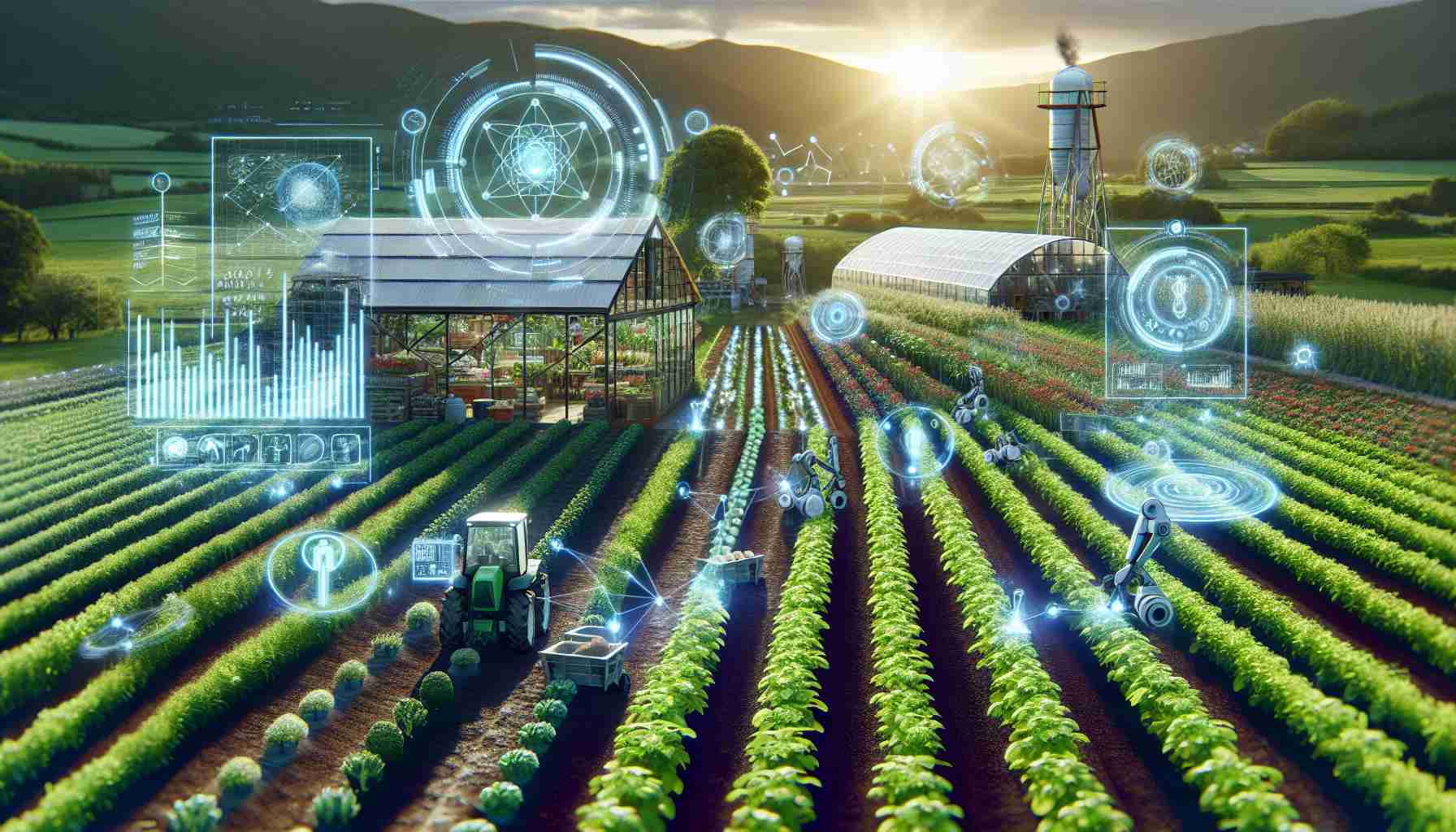Classiq, a pioneer in quantum computing software, has partnered with Florence Quantum Labs to revolutionize precision agriculture through cutting-edge quantum-enhanced solutions. This collaboration is set against the backdrop of the International Year of Quantum Science and Technologies in 2025, with both organizations united to tackle urgent global challenges related to food security and sustainability.
Their innovative project will harness Classiq’s advanced quantum development platform to engineer sophisticated AI-quantum hybrid algorithms. These algorithms will focus on crucial areas such as ecosystem modeling, soil health assessment, and nutrient management, leading to more efficient farming practices. By integrating Florence Quantum Labs’ expertise in quantum-enhanced biosensors, the partnership aims to create methodologies that improve farming accuracy and productivity.
The CEOs of both companies expressed enthusiasm about the partnership. The leader of Classiq emphasized the powerful potential that quantum computing holds for solving pressing food supply issues. In contrast, the head of Florence underscored the significant changes that could arise from merging quantum technologies with sustainable agricultural practices.
Together, they are paving the way for a futuristic approach to farming that promises to enhance food production while also being mindful of environmental impacts.
For further insights into their groundbreaking collaboration, a detailed press release can be found on Classiq’s official website. The future of farming is here—where innovation meets sustainability!
The Future of Farming: Quantum Innovations and Their Global Impact
The collaboration between Classiq and Florence Quantum Labs not only signifies a technological leap in agriculture but also heralds profound implications for society and the global economy. As food security becomes increasingly precarious amidst rising populations and climate change, integrating quantum computing into agriculture can potentially transform our food systems. More efficient farming practices could lead to less waste, reduced resource consumption, and ultimately, a more sustainable global food supply.
This paradigm shift toward precision agriculture may also reshape cultural attitudes toward food production. As consumers become more aware of sustainable practices and their benefits, there is a growing demand for transparency in how food is produced. This partnership could drive a trend towards local sourcing and environmentally friendly practices, influencing consumer choices and agricultural policies.
In terms of environmental effects, utilizing quantum-enhanced methods to optimize soil health and nutrient management could mitigate the ecological footprint of agriculture. This not only addresses immediate concerns about the environment but also promotes biodiversity by encouraging practices that support the restoration of ecosystems rather than their depletion.
Looking ahead, the long-term significance of this collaboration is immense. As quantum technologies continue to evolve, their application in various sectors—including health, energy, and finance—will likely emerge, reshaping economic structures globally. Ultimately, the intersection of agriculture and quantum computing may redefine our approach to sustainability, making it an integral part of a new agricultural revolution.
Revolutionizing Agriculture: The Quantum Leap Towards Sustainable Farming
In a groundbreaking partnership, Classiq, a leader in quantum computing software, has joined forces with Florence Quantum Labs to innovate precision agriculture using advanced quantum technologies. This collaboration, set against the backdrop of the International Year of Quantum Science and Technologies in 2025, aims to combat the global challenges of food security and sustainability.
Features of the Partnership
– Quantum Development Platform: Classiq’s advanced quantum development platform will be utilized to create sophisticated AI-quantum hybrid algorithms.
– Focus Areas: The algorithms will target critical components of agriculture such as ecosystem modeling, soil health assessment, and nutrient management, ultimately contributing to more efficient farming practices.
– Integration of Biosensors: Florence Quantum Labs will bring its expertise in quantum-enhanced biosensors to the table, helping to develop methodologies that boost farming accuracy and productivity.
Pros and Cons of Quantum in Agriculture
Pros:
– Enhanced data analysis through quantum computing speeds up decision-making processes.
– Improved modeling of ecological systems leads to better resource allocation.
– Sustainable practices can result from precise nutrient management and soil health monitoring.
Cons:
– The technology is still in its early stages and may require significant investment.
– Adoption of new technologies can be challenging for traditional farmers.
– Dependence on quantum technology could create vulnerabilities in data security and farming operations.
Use Cases
1. Precision Farming: By applying quantum-enhanced algorithms, farmers can obtain real-time analytics on soil health, enabling them to tailor their practices to specific conditions.
2. Resource Management: The partnership aims to develop systems that accurately predict nutrient needs, reducing waste and improving yields.
Market Analysis and Trends
The integration of quantum computing in agriculture is an emerging trend that reflects a broader shift towards smart farming. As the agricultural sector faces increasing pressure to produce more food sustainably, technologies that enhance efficiency and sustainability will be critical. The global precision farming market is projected to grow significantly, driven by the need for increased agricultural productivity and resource conservation.
Insights and Innovations
– Sustainability Focus: This partnership exemplifies a growing commitment to sustainable agricultural practices, blending technology with environmental stewardship.
– Future Predictions: As quantum technologies evolve, their application in agriculture is likely to expand, with potential impacts on global food supply chains and climate resilience.
Security Aspects
As with any technological advancement, security is a key concern. The integration of quantum technologies into agriculture requires robust cybersecurity measures to protect sensitive data and ensure the integrity of farming operations.
Pricing and Availability
While specific pricing models for the technology are not yet disclosed, investments in quantum computing and AI solutions are expected to be significant. Farmers and stakeholders must weigh the advantages against potential costs when considering adoption.
For more detailed information on this innovative collaboration and its implications for the future of farming, visit Classiq’s official website. The future of agriculture is poised for exciting transformations as technology and sustainability converge.













